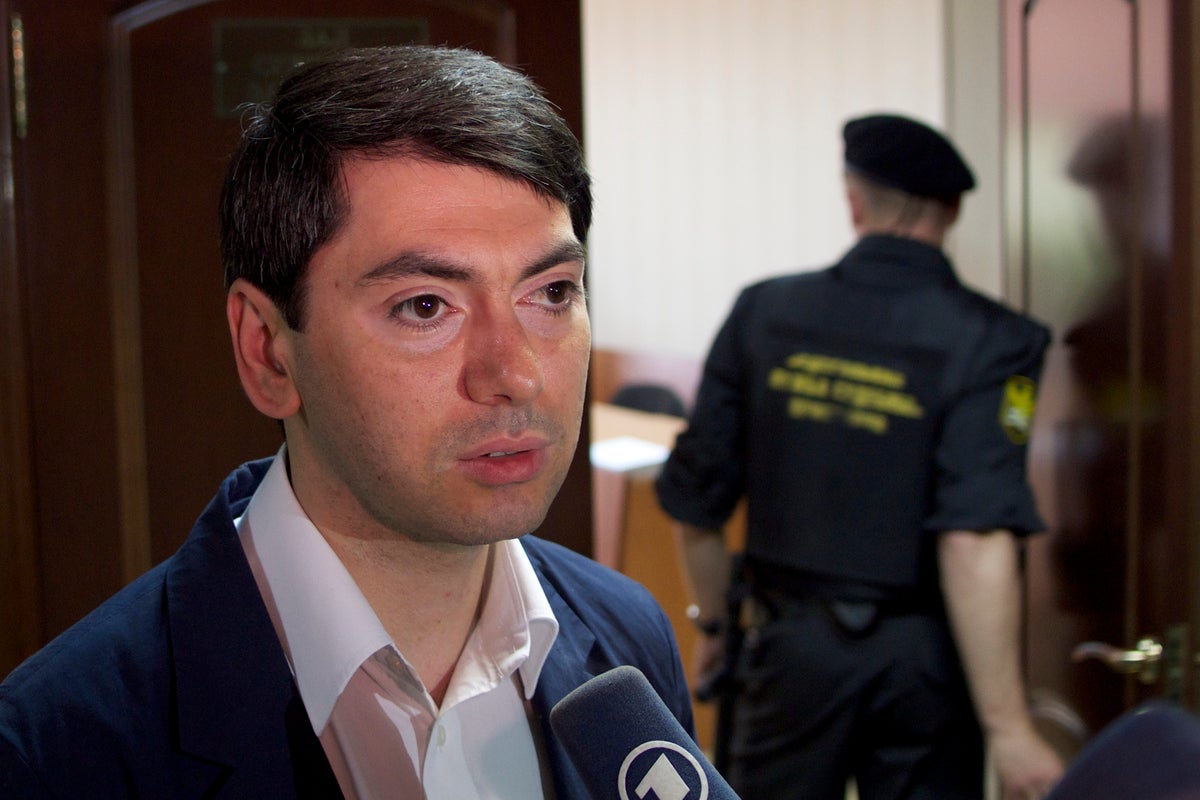
The Russian authorities have opened a criminal investigation into one of the leaders of a prominent independent election monitoring group, his lawyer said Thursday.
The case against Grigory Melkonyants, co-chair of Russia's leading election watchdog Golos, is the latest step in the months-long crackdown on Kremlin critics and rights activists that the government ratcheted up after sending troops into Ukraine.
Melkonyants' lawyer Mikhail Biryukov told The Associated Press that his client is facing charges of “organizing activities" of an “undesirable” group, a criminal offense punishable by up to six years in prison.
Golos has not been labeled “undesirable" — a label that under a 2015 law makes involvement with such organizations a criminal offense. But it was once a member of the European Network of Election Monitoring Organizations, a group that was declared “undesirable” in Russia in 2021.
Police raided the homes of a further 14 Golos members on Thursday in eight different cities, Russia's state news agency RIA Novosti reported. Melkonyants' apartment in Moscow was also raided, and he was taken in for questioning.
In an interview with the AP Thursday, David Kankiya, a governing council member at Golos, linked the pressure on the group to the upcoming regional elections in Russia in September and the presidential election that is expected to take place in the spring of 2024. “We see this as a form of political pressure and an attempt to stifle our activities in Russia," Kankiya said.
Golos was founded in 2000 and has since played a key role in independent monitoring of elections in Russia. Over the years, it has faced mounting pressure from the authorities. In 2013, the group was designated as a “foreign agent” — a label that implies additional government scrutiny and carries strong pejorative connotations. Three years later, it was liquidated as a non-governmental organization by Russia's Justice Ministry.
Golos has continued to operate without registering as an NGO, exposing violations at various elections, and 2021 it was added to a new registry of “foreign agents,” created by the Justice Ministry for groups that are not registered as a legal entity in Russia.
Independent journalists, critics, activists and opposition figures in Russia have come under increasing pressure from the government in recent years which intensified significantly amid the conflict in Ukraine. Multiple independent news outlets and rights groups have been shut down, labeled as “foreign agents,” or outlawed as “undesirable. Activists and critics of the Kremlin have faced criminal charges.
The authorities have also banned popular social media platforms, such as Facebook, Instagram and Twitter, and have targeted other online services with hefty fines.
On Thursday, a Russian court imposed a 3-million-ruble ($32,000) fine on Google for failing to delete allegedly false information about the conflict in Ukraine. The move by a magistrate’s court follows similar actions in early August against Apple and the Wikimedia Foundation that hosts Wikipedia.
According to Russian news reports, the court found that the YouTube video service, which is owned by Google, was guilty of not deleting videos with incorrect information about the conflict — which Russia characterizes as a “special military operation”.







